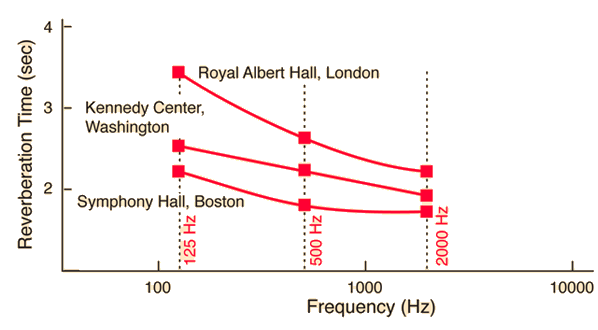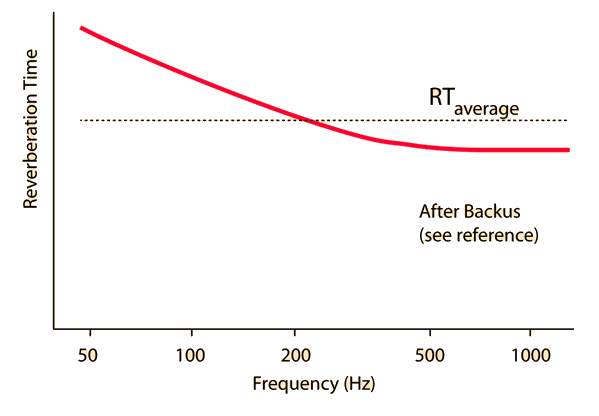Auditorium Examples
The auditoriums cited below are some of the most outstanding in the world, and they show the consistent pattern of having significantly longer reverberation times for low frequencies. The first column is a measurement of the delay time between direct sound and the first reflected sound, which has been associated with a feeling of "presence" or "intimacy" as perceived by the listener.
|
Auditorium | t1(floor, ms) | RT(125Hz) | RT(500 Hz) | RT(2000 Hz) |
| Symphony Hall, Boston | 15 | 2.2 | 1.8 | 1.7 |
| Orchestra Hall, Chicago | 40 | ... | 1.3 | ... |
| Severance Hall, Cleveland | 20 | ... | 1.7 | 1.6 |
| Carnegie Hall, New York | 23 | 1.8 | 1.8 | 1.6 |
| Opera House, San Francisco | 51 | ... | 1.7 | ... |
| Arie Crown Theatre, Chicago | 36 | 2.2 | 1.7 | 1.4 |
| Royal Festival Hall, London | 34 | 1.4 | 1.5 | 1.4 |
| Royal Albert Hall, London | 65 | 3.4 | 2.6 | 2.2 |
| Concertgebouw, Amsterdam | 21 | 2.2 | 2.1 | 1.8 |
| Kennedy Center, Washington | ... | 2.5 | 2.2 | 1.9 |
 See also White & White, p375 for table of opera houses and auditoriums.
See also White & White, p375 for table of opera houses and auditoriums.
|
Index
Auditorium acoustics
References
Rossing
Science of Sound
Ch 23
Beranek |

